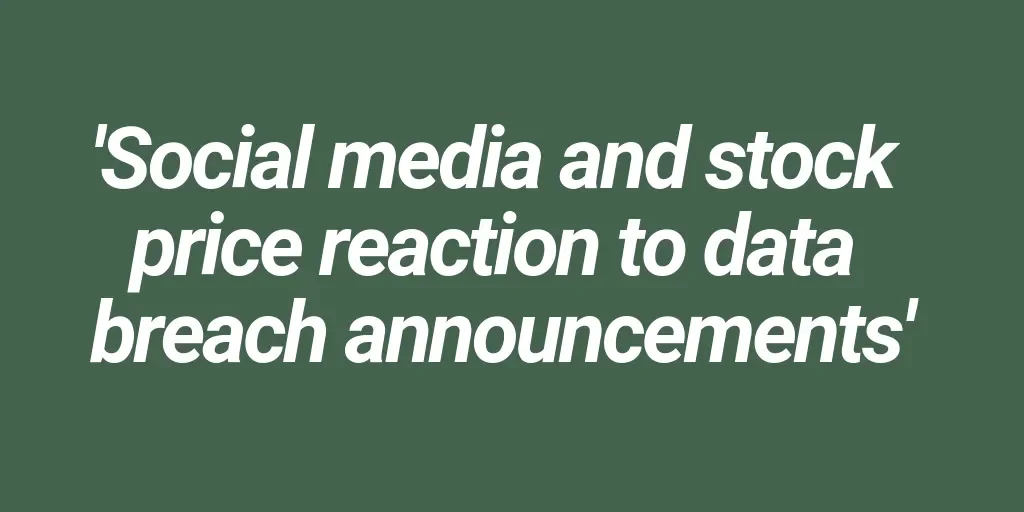

Increased social media activity during a data breach only serves to deepen the crisis - DCU study
A new DCU study has shown how increased social media exposure, particularly on Twitter, adversely affects the cost to firms who’ve experienced a data breach.
As more and more of our personal information is stored by the companies we transact with on a daily basis, data breaches and hacks have become increasingly prevalent. In 2018 alone, Google, Facebook, British Airways, Under Armour and most significantly, the Marriott hotel group (with up to 500 million customers affected) were among the companies who experienced serious data breaches. These breaches exposed a range of personal information such as email addresses and passwords through to credit card details and passport numbers.
‘Social media and stock price reaction to data breach announcements’, a study conducted by DCU researchers, has investigated whether increased exposure on social media mitigated or compounded the cost and damage caused by a data breach.
The study looked at 87 individual breaches across 73 publicly listed US companies that occurred over a four year period.
Their analysis found that social media exposure can exacerbate the negative impact of data breach announcements and increase the cost of these breaches, with an average additional decrease in stock price of 1.2%.
The negative impact is even more pronounced when a firm 1) discloses a breach via their Twitter account (a further decrease of 5.2% in stock price), 2) increases their number of tweets over the event period and 3) has a large following on Twitter.
It also found that timely communication and disclosure of a breach can reduce the potential harm for firms that have quite low-visibility with traditional media like newspapers. The impact for these firms is positive as social media offers them an effective channel to disseminate information that cannot be disseminated through more established channels.
Dr. Pierangelo Rosati of the DCU Business School said “Social media has the expectation of instant feedback and meeting that expectation is incredibly difficult in midst of a crisis, and this creates a significant amount of pressure. The number of tweets or comments can be overwhelming. Also, once bad news goes viral, it is very hard for companies to keep control of the information flow. In the context of a company crisis, this may be particularly detrimental and worsen an already serious situation.”
He added “There is a generalised positive view on the adoption of social media for firms’ communications. This study shows that communications departments and press officers should be more aware of the downsides and negative aspects present when it comes to crisis management and allocate adequate resources to manage it."
KEY FINDINGS
Communication via social media tends to exacerbate negative impact of a data breach
Additional 1.2% drop in stock price
Negative effect even more pronounced when firms disclose a data breach through their Twitter account, increase their levels of communication over the period of the breach or have a large audience on social media
This leads to a further 5.2% drop in stock price
Impact can however be positive for firms which have low-visibility and a low media profile
87 individual breaches across 73 publicly listed companies that occured over a three year period examined
RESEARCH TEAM
Dr. Pierangelo Rosati, DCU Business School
Dr. Peter Deeney, DCU Business School
Prof. Mark Cummins, DCU Business School
Dr. Lisa van der Werff, DCU Business School
Prof. Theo Lynn, DCU Business School
